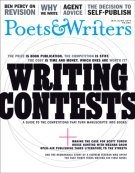Over the years, Marlantes found that the rejections could be infuriatingly contradictory. Once, he was told that the book had great characters but a weak plot. A few days later, another rejection letter praised the plot and said the characters were weak. "They just don't want to tell you, ‘We don't think we can make money on it,'" Marlantes says now. While he often felt frustrated and upset by the rejection, he kept at it. Sending more queries in the mid-2000s—after another ten-year gap and further attempts at revision—brought a familiar refrain: "Maybe you could set it in Afghanistan, that might work better—and cut it in half."
For a long time, Marlantes says, he didn't really think about why he persevered in the face of so much rejection; writing this book was just a part of his life. But recently, prodded by his publicist at Grove/Atlantic, he gave it some thought and recalled a day very soon after he'd gotten back from the war. He was in Washington, D.C., serving the remainder of his three-year Marine Corps hitch assigned to the Pentagon. Walking down Pennsylvania Avenue wearing his uniform, he saw a group of students across the street, holding Vietcong and North Vietnamese flags. "They were shouting insults and swearing at me and giving me the finger," he recalls. "I was just stunned. I wanted to say, ‘You don't know who you're talking to. All the friends I just left behind in Vietnam are younger than you are, and I'm just your age!' I began to realize that what I wanted to do was reach across that street. I wanted to write to explain myself and my friends."
After years of studying the "right" route to publication, Marlantes got a break that deviated gratifyingly from the script. In the fall of 2007, he sent the manuscript to his friend Ken Pallack, who had asked to read it simply because he was interested in Marlantes's writing. With the manuscript on his desk, Pallack got a fortuitous call from Tom Farber, a college friend he hadn't spoken to in quite a while. Pallack knew that Farber was a professor of creative writing at the University of California in Berkeley, but since they'd last spoken, Farber told him, he'd founded a small nonprofit publishing house called El León Literary Arts, which published "books that seem to be unable to be published elsewhere in the commercial marketplace." Pallack told Farber that he happened to have a promising manuscript right in front of him, and Farber told him to have the author send it to El León's senior editor, Kit Duane.
Marlantes was dubious. "I said to him, ‘Ken, you want me to go down to Kinko's and spend fifty dollars copying this manuscript about Marines in Vietnam to send to a woman in Berkeley?'" But his war novel turned out to have a broader appeal than he'd imagined. "I was captured from the very first page," Duane says. "Karl always had the broader perspective as he wrote, that the world is much more than the one human being who is seeing it and feeling it. I'm always very picky about that."








